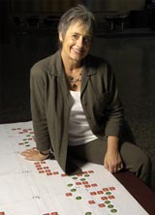From the Task-Centered Approach to Evidence-Based and Integrative Practice
June 5, 2009
8:30 a.m.-5:00 p.m. with reception to follow
SCHEDULE
Registration & Continental Breakfast
8:30 – 9:00 am
Welcome & Introduction
9:00 – 9:15 am
“The contributions of William J. Reid to Empirical Practice in Social Work: The Task-Centered Model and Other Innovations in Practice Research”
9:15 – 10:00 am
William J. Reid and Laura Epstein were among the first social workers to use research to develop empirical practice in social work. Their task-centered model developed from then-controversial findings and evolved through research over 30 years. Now, many of its tenets are considered “just good practice.” This presentation will trace model building through research as well as Reid’s other contributions to empirical practice and the state of knowledge in social work practice.
Anne E. (Ricky) Fortune, University at Albany School of Social Work
“The Applied Science Approach and the Cognitive-Integrative Perspective”
10:15 – 11:00 am
There is a great deal that could be said about how the applied science approach has contributed to the development and evolution of cognitive therapy. This presentation will focus on examples of advancements in science in the fields of cognitive psychology, experimental psychology, social psychology, social work, clinical psychology, and neuroscience to develop the “Cognitive-Integrative Perspective.” The applied science approach to understanding mental and therapeutic processes is an iterative process that takes a real world problem or question as its starting point and then moves back and forth between theory, rigorous experimentation, and real world applications and evaluations to generate detailed empirical information, improved theoretical accounts, and, in this case, advances in cognitive therapy intervention methods on the ground.
Sharon Berlin, the University of Chicago School of Social Service Administration
“Learning by Intervening: Evidence-Based Practice as a Mode of Inquiry”
11:15 am – 12:00 pm
This presentation will locate evidence-based practice in an array of "modes of inquiry" or types of research used by practitioners to inform practice decisions. Modes of inquiry will be assessed in terms of their relevance to intervention decisions, extent to which they reduce uncertainty,and extent to which they rely on intuition versus analysis.
Jeanne C. Marsh, the University of Chicago School of Social Service Administration
Lunch
12:00 – 1:00 pm
PANEL 1
“Using Data from Practice to Improve Child Welfare Decisions and Intervention”
1:00 – 2:30 pm
The Office of the Inspector General (OIG) for the Illinois Department of Children and Family Services was created by the General Assembly in June 1993 to reform and strengthen the child welfare system. Responding to complaints filed by the state and local judiciary, foster parents, biological parents, and the general public, OIG investigations yield both case-specific recommendations and recommendations for larger changes within the child welfare system. The OIG also undertakes evidence-based projects designed to improve practice, management, policy, and increase professionalism in the department. This panel will discuss what is being learned from recent initiatives to reduce case decision errors and improve services to vulnerable children and their families.
Panelists:
Denise Kane, Illinois Department of Children and Family Services, Office of Inspector General
Elsie M. Pinkston, the University of Chicago School of Social Service Administration
Ronald H. Rooney, University of Minnesota School of Social Work
Tina L. Rzepnicki, the University of Chicago School of Social Service Administration
PANEL 2
“Implementing Evidence-Based Practice in Community and State Agencies”
2:45 – 4:00 pm
Dissemination and implementation in real world practice has lagged behind development of the methods of evidence-based practice (EBP). Panelists will highlight some of the obstacles and solutions to successful adoption and implementation of EBP they have learned from their work in community and state agencies in Illinois, New York, and Oregon. They also will discuss ways in which their work may support divergent perspectives on the adoption and diffusion process.
Panelists:
Jennifer L. Bellamy, the University of Chicago School of Social Service Administration
Harold E. Briggs, School of Social Work, Portland State University
Stanley G. McCracken, the University of Chicago School of Social Service Administration
“Evidence-Based or Biased? Why Methods of Research Synthesis Matter”
4:00 – 4:45 pm
The explosion of information in the internet age, along with a resurgence of interest in “what works,” increased the demand for comprehensive and authoritative summaries of empirical research to inform policy and practice. However, traditional methods of reviewing research are not up to this task, because they do not address biases that arise in the literature and in the review process itself. The science of research synthesis is based on a growing body of evidence about methods that can be used to detect and correct (or at least minimize) biases in identification, analysis, and synthesis of empirical research. This presentation identifies biases in the evidence base and several ways to cope with them. It describes and contrasts scientific and unscientific methods of research synthesis. The role of empirical evidence in policy and practice decisions, and recent contributions from the philosophy of science are also considered.
Julia H. Littell, Graduate School of Social Work and Social Research, Bryn Mawr College
Closing Remarks
4:45 – 5:00 pm
Reception
5:00 – 6:00 pm
